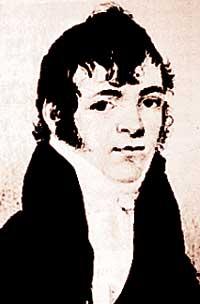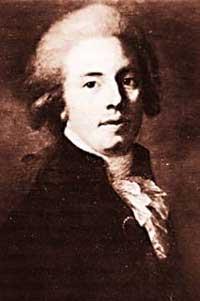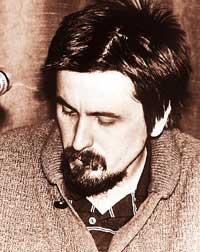The Elhuyar brothers...
Elhuyar Fundazioa

The brothers Joan Jose and Fausto Fermin Elhuyar Lubize were born in Logroño on 15-VI and 11-X-1754 respectively. When Ursula's mother died, Juan Elhuyar married again with Juan José, Fausto and María Lorentza, to better care for his father.
In 1772 the brothers Joan José and Fausto Fermin went to Paris to study at the school “Le Jardin du Roi”. There they worked mainly chemistry and mineralogy, but also botany, zoology, etc.

In 1777 John Joseph came from Paris to the Royal Seminary of Bergara (created by Xabier Maria Munibe and the Knights of Azkoitia) and the following year, in 1778, his brother Faust. Both brothers worked in the laboratory, but soon traveled through Europe (Paris, Strasburg, Mannheim, Freiburg, Leipzig, etc.) to learn the latest developments in metallurgy and mineralogy. After touring Austria and Hungary together in 1781, Fausto returned to Bergara and Joan José, traveling to the Swedish Uppsala, learned to analyze the wolframite ore by Berman.
Juan José returned to Bergara in 1782 and the two brothers tried to isolate wolfram in the laboratory. And for the first time in the world to isolate this chemical element. This main discovery was announced in 1783 at the General Assembly of Friends of the People of Vitoria.
Then Fausto Fermin travelled to Mexico after touring Germany and Hungary. There he founded the Real Seminario de Minas, the first school of engineers in the country. In 1821 he returned to Spain and died in Madrid on January 6, 1833.
His brother Juan José traveled to Colombia and tried to improve his mines. He died on 20 September 1796 in Bogotá.
... why?
I mean memory and I can make a mistake in it or in it. What I remember is the following. On the one hand, some of us who had visited the engineering school, and who were not women, started meeting weekly. Scientific and technical issues were being written in Basque.

One day, not immediately, we started creating a magazine. Name for that need, plus money and legal protection. We went to the Real Sociedad Vascongada de Amigos del País in search, among other things, of protection.
XVIII. As in the second half of the twentieth century the knowledge of scientific techniques was more direct, we find the biography of the Elhuyar brothers. Someone I don't remember who, it was wrong to give the magazine the name of those brothers and the others seemed good: it is the magazine Elhuyar and its development, the group of the same name (first) and the association (later).
But how to write the name? We knew that a Mitxelena, for example, in his work Basque surnames explained it divided into components El(h)orri + (e)ihar. But how did we give it now? For both of us we had supporters. We decided to consult Luis Villasante, president of Euskaltzaindia. He also did so at a conference he gave in Donostia. After weighing and measuring the difficulties of both options, he suggested that “you will almost have better leave them in his writing then.” He says it and we do it.





